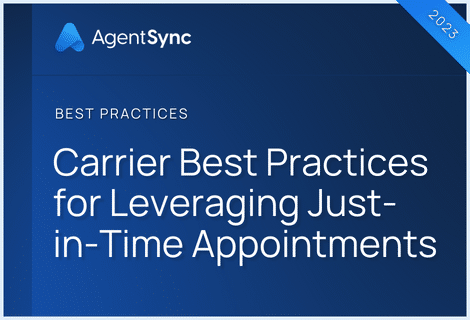

Florida has warned insurance producers to check licenses for their intended carrier partners as it and other states see fake insurance and other fraud increases.
Since states require each insurance contract to be sold with all parties holding appropriate licenses and appointments, it’s not surprising that insurance carriers, agencies, and MGAs are looking for ways to innovate their processes for quick, automatic validations. What is surprising is the increasing need for that data verification to flow upstream, as well, with producers requesting to see carrier licensing before binding coverage.
It’s a little like some scrawny young thing at the door of the club, handing over their driver’s license to show they’re 21, and then telling the bouncer, “Now, let me check your liquor license.” But, as the rise in insurance fraud increases, producers who don’t want to risk their licenses should remember that compliance and due-diligence obligations are meant to be fullstack. From solicitation to claims, everyone should be aboveboard, and working with a fake insurer is a painful way to lose your license.
Rise in insurance carrier fraud
Florida isn’t the only one reminding insurance producers that due diligence doesn’t just flow one way. Generally, several states have noticed an increase in unregulated securities being packaged as insurance and sold through legitimate insurance agencies, only for the downstream targets – often unsuspecting retirees – to discover they don’t have an insurance contract. Instead, they find they’re the owners of a speculative real estate investment, cryptocurrency, or a big pile of nothing.

Often these products are targeted for sale through producers who are in the life and health lines of authority, with scammers hoping the legitimate producer will mix them into the assets offered to those nearing retirement, who often have more assets to invest and are looking for income sources to fund their retirements.
To complicate things, it’s true some insurance products do have an investment-adjacent element or are even directly tied to the market, such as some forms of permanent life insurance, like indexed or variable universal life insurance policies, or indexed or variable annuities. Legitimate insurance-plus-investing options can add to the confusion for producers who are licensed to sell both.
State-specific concerns about unregistered securities disguised as insurance
Florida
Florida’s warning appears to stem from various fraudsters posing as representatives of health insurance plans or multiple employer welfare arrangements (MEWAs), appearing to sell legitimate plans with well-put-together marketing. Per the Florida bulletin, sometimes the pitch artists pose their “opportunity” as being subject to the Employee Retirement Income Security Act (ERISA), a federal law protecting retirement funds. The scammers say because ERISA is federal, state regulations have no jurisdictional authority. To be clear, when it comes to insurance regulations, federal and state laws are a both/and proposition.
“There is always someone who has a guaranteed, get-rich-quick investment seeking out insurance professionals with an established market of clients to whom they can sell these products,” said the missive from Florida Chief Financial Officer Jimmy Patronis’s office. “These bogus investments can range from communications equipment companies to real estate and land development opportunities, which almost always turn out to be unregistered securities. These investments have been so well packaged and pitched that some agents also purchased them, as did their family members.”
Wisconsin
“Licensed insurance agents may be targeted to market or sell unregistered securities such as promissory notes, investments tied to cryptocurrencies and digital assets, and investments connected to self-directed individual retirement accounts,” said Commissioner Houdek’s office. “Insurance agents are increasingly being targeted by issuers, promoters, and marketing agents to sell high-risk speculative investments to their customers. Agents are sometimes told these are nonsecurities products that do not have to be sold through a securities broker or dealer. Some of these unregulated products carry a risk of total loss of the consumers’ investment.”
Anyone who watched the Super Bowl might be feeling a little suspicious of how much money got pumped into crypto coin advertising. And we gotta say the rise of cryptocurrency in the unregistered-securities-trying-to-hustle-retirees space isn’t a great look for an investment option that’s trying to be taken seriously.
The solution: How to check your carrier’s license
One thing that really caught our attention in Florida’s bulletin was the admonition from Patronis’s office that producers should be checking their insurance partners’ licenses. As we said at the top of the blog, often validating licensure is something that is mostly a concern for agencies and carriers who need to make sure their producers are aboveboard. So, Florida explicitly stating that part of a producer’s due diligence is to license-check carriers and agencies … it’s just a little unusual.
But. We’re also a company that makes license validation and compliance quite simple, so we’re happy to lean in.
Florida offers a few tips to help you verify before you sell:
- Make sure you have the complete and correct name of the insurance company.
- For Florida companies, go to https://www.floir.com/CompanySearch.
- Enter the insurance company’s name and click on the “Search” button.
- Confirm that the insurance company as identified in Step 1 is listed and authorized to conduct the line of business.
On a less localized level, if you are an insurance producer looking to validate a potential partner’s license, you should be able to obtain the carrier’s NAIC number or an agency’s NPN to easily search for their information using the NAIC’s consumer search or the NIPR producer search (which also identifies business entities/agencies), respectively.
And, if you’re dually licensed (DL) and are questioning a securities-based product, do a FINRA broker check on your potential partner’s license.
Onward and upward
Due diligence in insurance is ultimately an everybody problem. And, while the system of verifying your various partnership opportunities is imperfect today, some (like, say, AgentSync?) are working for a more perfect tomorrow.
If your best carrier, MGA, or agency partners aren’t with us yet, send them the AgentSync demo, and ensure everybody up and down your distribution pipeline is licensed and ready to sell.

